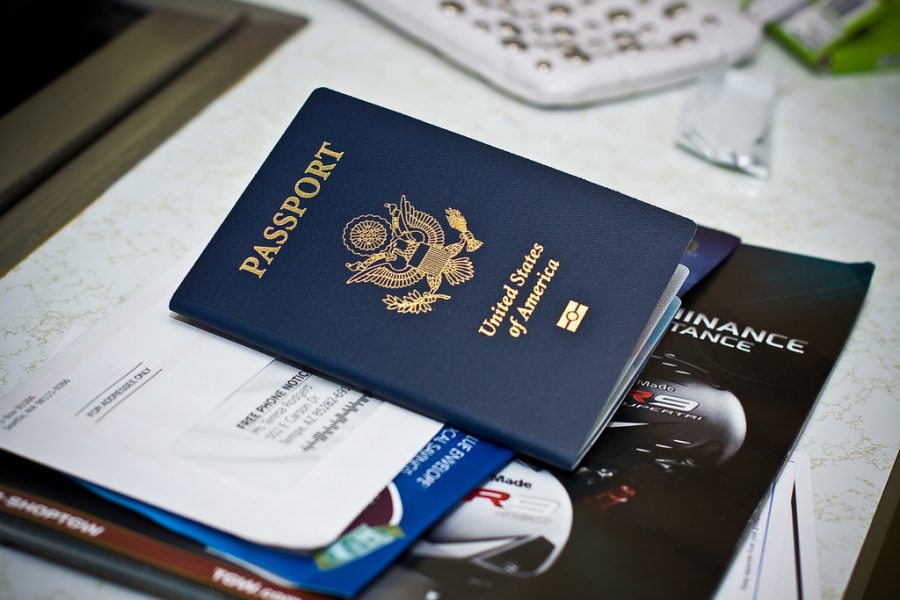‘Stuck in our American bubble’: Study Abroad office details new programs amid pandemic
In place of overseas and domestic travel, which had been cancelled, Pitt is offering a variety of virtual internships.
November 18, 2020
Rebecca Chen, a junior marketing major, worries that while cancelling in-person study abroad is necessary due to the COVID-19 pandemic, students might miss out on important cultural experiences.
“Regarding some non-academic activities like sight-seeing and what not, I’m not exactly sure if they’ll let us move around so freely,” Chen said. “If all of this is the case, will [we] be stuck in our American bubble?”
Pitt announced at the beginning of November it was cancelling all study abroad and away programs for the spring semester. In place of overseas and domestic travel, Pitt is offering a menu of virtual internships to students in at least their sophomore year, according to Jeff Whitehead, the director of the Study Abroad office.
“We will have a full boat of global internships that will be conducted remotely,” Whitehead said. “A lot of the sites where they’ll be actually doing their internships will be in London, Sydney, Florence and China.”
Digital internships are unpaid, three-credit pass/fail programs that run from Feb. 5 through April 30. The cost for the program is included in a student’s normal tuition and fees. The programs will last for one semester and take up about 20 hours per week. Students are only allowed to take up to three classes besides the internship for a maximum of 16 credits.
Belkys Torres, the executive director of global engagement for the University Center for International Studies, said the digital internships will appeal to students from all majors and minors. She said there is a “wide variety of options” for students with placements in numerous fields, such as public relations, data analytics, health care and life sciences, web design, graphic design, human resources, sports management and education.
Whitehead also said there will be a fully digitized program based in the Himalayas in Mussoorie, India, that will start in the spring. He said courses will be optimized for online learning.
“Our students will still be able to do and see a lot of what they would be doing and seeing if they were in Mussoorie,” Whitehead said. “They’re actually going to digitize a lot of that content. They’re going to be carrying around cams and showing people, interfacing with people.”
But not all students are convinced digital programs can replace traditional study abroad programs. Chen said she struggles to see how digital study abroad programs could stand in for in-person programs.
“I think digital internships will never replace in-person experience. You just aren’t constantly surrounded by a culture that isn’t yours,” Chen said. “There isn’t this immediate and present stress that’ll push you to adapt faster.”
Chen said digital internships might not help students get out of their comfort zone and explore other cultures as much as in-person study abroad would.
“When it’s digital, it’s easier to retreat back to your comfort zone rather than challenging yourself when something new or unexpected presents itself,” Chen said.
Despite these concerns, Chen said she is glad Pitt is offering digital internships.
“Post-COVID, I think digital internships should be available,” Chen said. “If the pricing of it is less expensive than traditional study abroad, it’d be a good alternative if you’re tight on money.”
Whitehead said one of his goals for reimagining study abroad programs is to expand students’ access, because currently only about 10% of Pitt students pursue study abroad opportunities. He said the virtual opportunities accomplish this.
“We’re thinking about remaining with virtual internships, virtual projects — allowing people to choose off a menu of things that are taught in Sydney or London or Florence so that we can actually enrich the on-campus experience,” Whitehead said. “Particularly for people who — for whatever reason — are unable or unwilling to participate for any length of time abroad.”
Whitehead said he is optimistic about the return of traditional study abroad programs in the summer, but said that risky programs, like those in remote areas or hospitals, won’t work in the summer. He said the affected programs in the summer only account for about 15% to 20% of usual offerings.
“For instance, we’re not going to want to be having people wander into hospitals,” Whitehead said. “We don’t want to be having us exposing very impoverished areas where we would normally do service learning.”
Whitehead added that Pitt won’t be able to run its regular Ecuador program due to fears of inadequate medical care in the country for locals and students.
Torres and Whitehead both said one of their goals if study abroad happens in the summer is to avoid the type of academic disruption students experienced last semester. They plan to do so with a flexible program that can easily transition from in-person to online.
“We’ll be able to move it from mobility to virtual without it impacting a student,” Whitehead said. “We won’t be terminating people, we won’t have people that get halfway through the program that have to quit. If we have to come home, we’ll finish virtual. If we have to start virtual then travel we’ll do it that way.”
Whitehead said Pitt will try to prorate the cost of study abroad in the summer if students have to come back home.
“If students sign up for something that has academic travel, it will have a price,” Whitehead said. “If we have to move it to virtual, it will have a different price. We will add or subtract what would happen abroad.”
Whitehead said he understands that the student demand for study abroad is still strong and said the Study Abroad office is working to satisfy it.
“The message is, we’re still here,” Whitehead said. “We’re working very diligently to try to replicate some of the best of what we do on study abroad digitally while we wait out the pandemic.”



